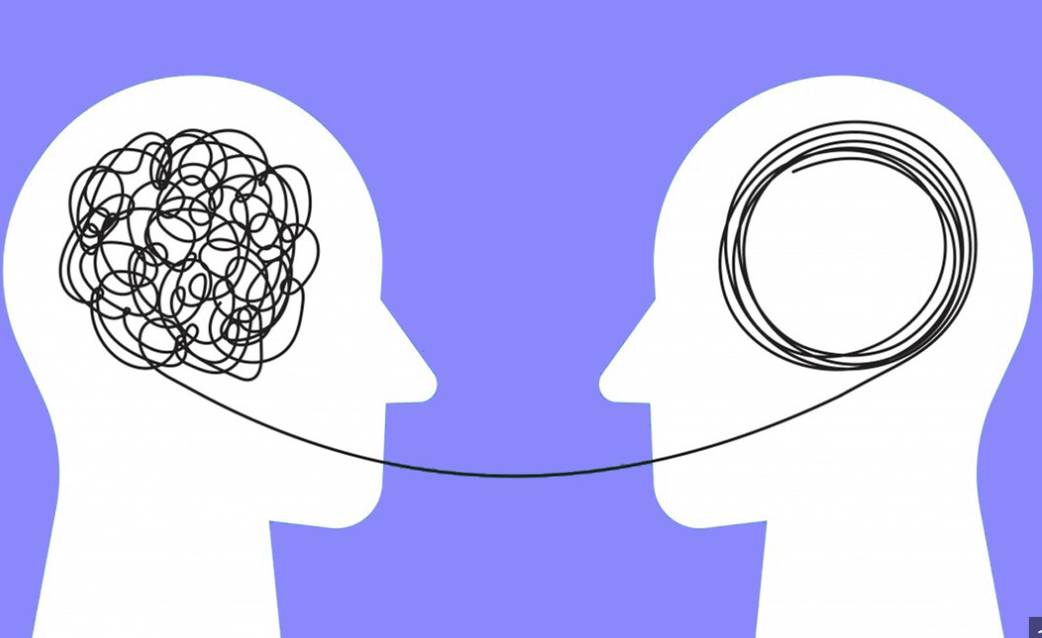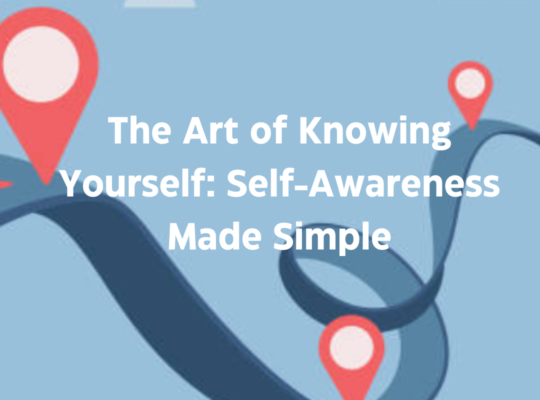Our brains are extraordinary, with trillions of connections managing various functions. Understanding three crucial traits can lead to a happier brain. First, our brains empathize, feeling the pain of others as our own. Second, the brain can’t distinguish between real and imagined events, affecting our emotions similarly. Third, physical and emotional pain are processed alike. Drawing on both ancient wisdom and modern science, this article explores how positive psychology, neurotransmitters, and holistic approaches contribute to mental well-being and happiness. Read my article on the Surge in Global Mental Health Crises Insights from this year to understand why we need adopt happy brain strategies in our daily life, why understanding these neurotransmitters and happiness is important.
Understanding the Neurotransmitters :
Your brain releases happiness chemicals – dopamine, oxytocin, serotonin, and endorphins. These chemicals play vital roles in motivation, bonding, feelings of importance, and pain relief. Achieving a balance and understanding how each chemical functions is key to promoting overall happiness.
- Dopamine: The Motivator
Dopamine fuels motivation, learning, and pleasure. Overstimulation can lead to addiction and the desire for more. Balancing activities that trigger dopamine is essential for sustained happiness. - Oxytocin: The Bonding Hormone
Known as the “cuddle hormone,” oxytocin fosters trust and strengthens relationships. Unlike dopamine, it provides lasting feelings of calm and safety. Connecting with others through physical touch, socializing, and even pet interactions can boost oxytocin levels. - Serotonin: The Confidence Booster
Serotonin rewards feelings of significance and power, promoting a calm confidence. It motivates leaders and helps build positive relationships within communities. - Endorphins: The Natural Pain Reliever
Endorphins act as natural painkillers, offering brief euphoria. Activities like laughter, exercise, and even eating dark chocolate can trigger endorphin release.
Studies indicate that unhappiness affects a significant portion of the global population, contributing to poor overall health. Depression has been linked to reduced levels of happiness chemicals, emphasizing the importance of maintaining a balance for mental well-being. Low levels of happiness chemicals can manifest as procrastination, low self-esteem, lack of motivation, anxiety, and other symptoms. Recognizing these signs is crucial for addressing potential deficiencies and promoting mental health.
Benefits of Happiness:
Happiness has profound effects on various aspects of human well-being, extending from physical health to cognitive functions. Scientifically, studies have demonstrated a strong connection between happiness and improved overall health. The presence of positive emotions has been linked to lower levels of cortisol, a stress hormone. This relationship is pivotal as reduced cortisol levels contribute to decreased inflammation in the body, thereby playing a protective role against chronic diseases such as cardiovascular disorders, diabetes, and autoimmune conditions.
Furthermore, the impact of happiness on heart health is a well-explored area within the scientific community. Psychocardiology, a burgeoning field, investigates the interplay between psychological factors, including happiness, and cardiovascular outcomes. Research indicates that individuals who experience positive emotions tend to exhibit favorable cardiovascular markers, including lower blood pressure and enhanced heart rate variability, mitigating the risk of heart diseases.
Stress reduction is another notable benefit of happiness, and its scientific underpinnings lie in the release of endorphins, the body’s natural stress relievers. These neurotransmitters interact with receptors in the brain to diminish the perception of pain and induce a profound sense of well-being. As a result, the positive emotional states associated with happiness play a crucial role in alleviating stress, contributing to an overall healthier physiological profile. In essence, the scientific evidence underscores the intricate connections between happiness and physical health, particularly in terms of heart health and stress reduction.
Psychological Impact of Positive Practices:
Positive psychology interventions, such as gratitude exercises, have been shown to positively impact mental health. Research indicates that practicing gratitude can lead to improved mood, increased life satisfaction, and reduced symptoms of depression and anxiety. For instance, a study published in the Journal of Positive Psychology (2013) found that individuals who engaged in a weekly gratitude journal reported higher levels of well-being and lower levels of stress compared to those who did not. Incorporating mindfulness practices into the discussion can provide additional insights into brain function.
Mindfulness and Brain Function:
Mindfulness meditation has been linked to changes in brain structure and function, particularly in areas associated with emotional regulation and self-awareness. Incorporating mindfulness practices into the discussion can provide additional insights into brain function. Mindfulness meditation has been linked to changes in brain structure and function, particularly in areas associated with emotional regulation and self-awareness. Research using neuroimaging techniques, such as fMRI, has shown that regular mindfulness practice is associated with increased gray matter density in the hippocampus, a region crucial for memory and emotional regulation (Hölzel et al., 2011). Please go through my article The Magic of Nature Can Energise Mental Health and Wellbeing for understanding how nature can help you practise mindfullness and improve your overall mental and physical well being.
The Role of Social Connections:
While oxytocin is discussed as a bonding hormone, exploring the broader impact of social connections on mental health is crucial. Meaningful social relationships have been identified as a key factor in promoting mental well-being and resilience against stressors. A longitudinal study published in the Journal of Abnormal Psychology (2019) found that individuals with stronger social connections exhibited lower levels of depressive symptoms over time.
Exercise and Mental Health:
Elaborating on the benefits of exercise, it’s worth emphasizing its role in promoting neuroplasticity, the brain’s ability to adapt and change. Regular physical activity has been linked to improved cognitive function, mood enhancement, and a reduced risk of developing mental health disorders. For example, a meta-analysis published in the British Journal of Sports Medicine (2017) demonstrated that exercise is associated with a significant reduction in symptoms of depression.
Holistic Approach to Mental Health:
Emphasizing the importance of a holistic approach to mental health, considering factors such as nutrition, sleep, and stress management, contributes to a more comprehensive understanding. These lifestyle factors play a significant role in maintaining a balanced and healthy brain. A study in the Journal of Affective Disorders (2019) found that individuals with better overall lifestyle habits, including healthy diet and sufficient sleep, had lower levels of psychological distress.
Individual Differences in Happiness Perception:
Recognizing that individual differences play a role in how people perceive and experience happiness is important. Factors such as personality traits, resilience, and coping strategies influence how individuals respond to positive psychology interventions. A study published in the Journal of Happiness Studies (2015) highlighted that individuals with higher levels of resilience tend to derive more long-term benefits from positive interventions compared to those with lower resilience.
Healing Trauma for improved Mental Health:
Understanding and addressing trauma is a vital component of nurturing a happy brain. Traumatic experiences can significantly impact the neural pathways and chemical balance within the brain, affecting mental health and well-being. To achieve lasting happiness, it’s crucial to acknowledge and heal from past traumas. Trauma-focused interventions, such as therapy and mindfulness practices, can help rewire neural connections, promoting resilience and emotional regulation. By delving into the roots of trauma, individuals can release the emotional burdens that hinder the production of happiness chemicals. Cultivating a supportive environment, both socially and psychologically, becomes essential for individuals on their journey towards healing. This holistic approach, encompassing positive psychology, neurotransmitter balance, and trauma recovery, paves the way for a truly happy and resilient brain. Recognizing the impact of trauma not only contributes to individual well-being but also fosters a compassionate and understanding society. Read my article on 6 Ways Childhood Trauma Impacts Adult Life And how to heal for healing from inside and outside.
- Citation: Emmons, R. A., & McCullough, M. E. (2003). Counting blessings versus burdens: An experimental investigation of gratitude and subjective well-being in daily life. Journal of Personality and Social Psychology, 84(2), 377–389.
- Citation: Hölzel, B. K., Carmody, J., Vangel, M., Congleton, C., Yerramsetti, S. M., Gard, T., & Lazar, S. W. (2011). Mindfulness practice leads to increases in regional brain gray matter density. Psychiatry Research: Neuroimaging, 191(1), 36–43.
- Citation: Heinrich, L. M., & Gullone, E. (2006). The clinical significance of loneliness: A literature review. Clinical Psychology Review, 26(6), 695–718.
- Citation: Cooney, G. M., Dwan, K., Greig, C. A., Lawlor, D. A., Rimer, J., Waugh, F. R., McMurdo, M., & Mead, G. E. (2013). Exercise for depression. Cochrane Database of Systematic Reviews, 9, CD004366.
- Citation: Jacka, F. N., O’Neil, A., Opie, R., Itsiopoulos, C., Cotton, S., Mohebbi, M., Castle, D., Dash, S., Mihalopoulos, C., Chatterton, M. L., Brazionis, L., Dean, O. M., Hodge, A. M., & Berk, M. (2017). A randomised controlled trial of dietary improvement for adults with major depression (the ‘SMILES’ trial). BMC Medicine, 15(1), 23.
- Citation: Proyer, R. T., Gander, F., Wellenzohn, S., & Ruch, W. (2015). Strengths-based positive psychology interventions: A randomized placebo-controlled online trial on long-term effects for a signature strengths- vs. a lesser strengths-intervention. Frontiers in Psychology, 6, 456.









[…] Our journey through life is woven with the threads of childhood traumas, subtly shaping the adults we become. These early experiences leave an indelible mark on our choices, influencing every decision we make. Yet, as we courageously untangle the knots of emotional avoidance, let’s make a solemn commitment to break free from the patterns that bind us. Recognising the impact of our past is the first stitch in the tapestry of healing, akin to patching up a beloved quilt. Seeking support and confronting our emotions head-on are not signs of weakness; they are the milestones of personal growth. Remember, you are not navigating this transformative path alone! Embrace the empowering notion that it’s perfectly acceptable not to be okay – vulnerability is your strength. With time, empathy, and self-compassion, we can mend the fabric of our lives, stitching together a narrative that leads to a more radiant and authentic future.Healing and addressing childhood trauma is crucial for cultivating a happy and healthy brain. […]
[…] Lasting HappinessFollowing your values leads to long-term happiness. Short-term pleasures might feel good for a while, but they don’t last. Living by your values […]
I’ve been following this blog for years and it’s amazing to see how much it has grown and evolved Congratulations on all your success!
Thankyou!!
I love how this blog gives a voice to important social and political issues It’s important to use your platform for good, and you do that flawlessly
Thank you for your perspective and noticing the details!
BaddieHub I’m often to blogging and i really appreciate your content. The article has actually peaks my interest. I’m going to bookmark your web site and maintain checking for brand spanking new information.
Tech to Trick Nice post. I learn something totally new and challenging on websites
The warmth and intelligence in The writing is as comforting as a cozy blanket on a cold night.
Thankyou so much!
Sportsurge There is definately a lot to find out about this subject. I like all the points you made
This comprehensive article had me hanging on every word, much like I would during a late-night chat.
The Writing is like a secret garden, each post a path leading to new discoveries and delights.
I am glad you liked it!
[…] whimsical trait but a vital component of well-being. By embracing our imaginative potential, we can enhance our quality of life, cultivate resilience, and inspire positive change in ourselves and others. Ultimately, fostering […]
[…] in the moment, and that’s okay. Apologize if needed and try to engage in mindful practices, like meditation or yoga, to cultivate awareness and prevent future […]
[…] involves exploring our strengths, weaknesses, motivations, and behaviors. Through practices like mindfulness, journaling, and seeking feedback, we gain valuable insights into ourselves and others. It fosters […]
[…] identifying emotions like frustration or sadness, you can take steps to cope with them. The more aware you are of your feelings, the better you can respond in healthy ways. For […]
The insights added a lot of value, in a way only Google Scholar dreams of. Thanks for the enlightenment.
The insights are like keys, unlocking new perspectives and ideas I hadn’t considered.
Thoughtful analysis that made me think, which is quite the feat these days.
I appreciate the unique viewpoints you bring to The writing. Very insightful!
A masterpiece of writing. Van Gogh’s got nothing on you, except maybe both ears.
Adding value to the conversation, because what’s a discussion without The two cents?